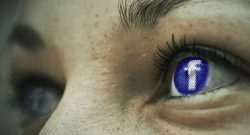Does Social Media Fuel Addiction?
The advent of the Internet took the world by storm some 20+ years ago. Since that time, social media’s influence has developed in waves to the point where it’s an everyday part of many peoples’ lives.
Social media or social networking sites exist as virtual communities where users take on identities (whether real or created), and interact with one other through shared content and shared interests. Considering internet addiction disorder is already an official diagnosis, the idea of social media fueling addiction is not too far-fetched.
Ultimately, the role social media activities take on in any one person’s daily life determines whether an addiction is at work.
For information on addiction treatment program options, call our toll-free helpline at 888-647-0051 (Who Answers?) .
Compulsive Social Media Use & Addiction

Constantly thinking about social media activities is a sign of addiction.
According to the International Journal of Environmental Research & Public Health, addiction, by its very nature, entails compulsive behavior that impacts a person’s daily life in negative ways. In this respect, any activity or indulgence can become an addiction when it becomes a compulsion or daily obsession.
Likewise, people who engage in compulsive social media use stand to experience many of the same adverse effects as any other form of addiction, such as:
- An increasing need for more social media interaction
- Symptoms of withdrawal when away from social media for extended periods
- Interpersonal conflicts that result from excess social media use
- Constantly thinking about social media activities
When one or more of the above symptoms are present, a social medial addiction may well be at work.
Process-Based Addictions
While today’s addiction epidemic centers on drugs and alcohol, addiction can take different forms, some of which don’t involve substances. According to the American Journal of Drug and Alcohol Abuse, process-based addictions have to do with compulsive behaviors that center on a particular activity, such as gambling or playing video games.
In this respect, social media overuse can become compulsive in nature over time under the right conditions. Since one form of addiction can make a person more vulnerable to other types of addiction, compulsive social media use may well fuel other forms of compulsive behavior, be it substance abuse or a process-based compulsion.
Social Media Use & Addiction Risk Factors
Mental Health Problems
People who frequent social media sites as their primary source of social interaction may be struggling with underlying emotional or psychological problems. As a general rule, people struggling with mental health problems face an increased risk of developing substance abuse issues.
https://www.disorders.org/trapped-on-the-web-internet-addiction-disorder/
Unhappy Home Environment
It’s not uncommon for social media activities to become a form of escape from a person’s daily life. For someone who’s had a difficult upbringing or currently lives in an unhappy home environment, social media interactions can be highly rewarding in terms of his or her feeling validated as a person.
According to the National Institute on Drug Abuse, this type of coping behavior can breed addiction-based tendencies.
Problems at Work or School
Problems at work or school that stem from a lack of social skills can make daily life extremely stressful. Much like social media can become an escape from an unhappy environment, individuals can also use it as a form of stress release.
Considering the source of the stress is ongoing, using social media as a coping mechanism opens the door for other forms of compulsive behavior, such as gambling or drinking to develop.
If you suspect you or someone you know has a problem with social media use and are considering getting treatment help, feel free to call our helpline at 888-647-0051 (Who Answers?) to speak with one of our addiction specialists.





